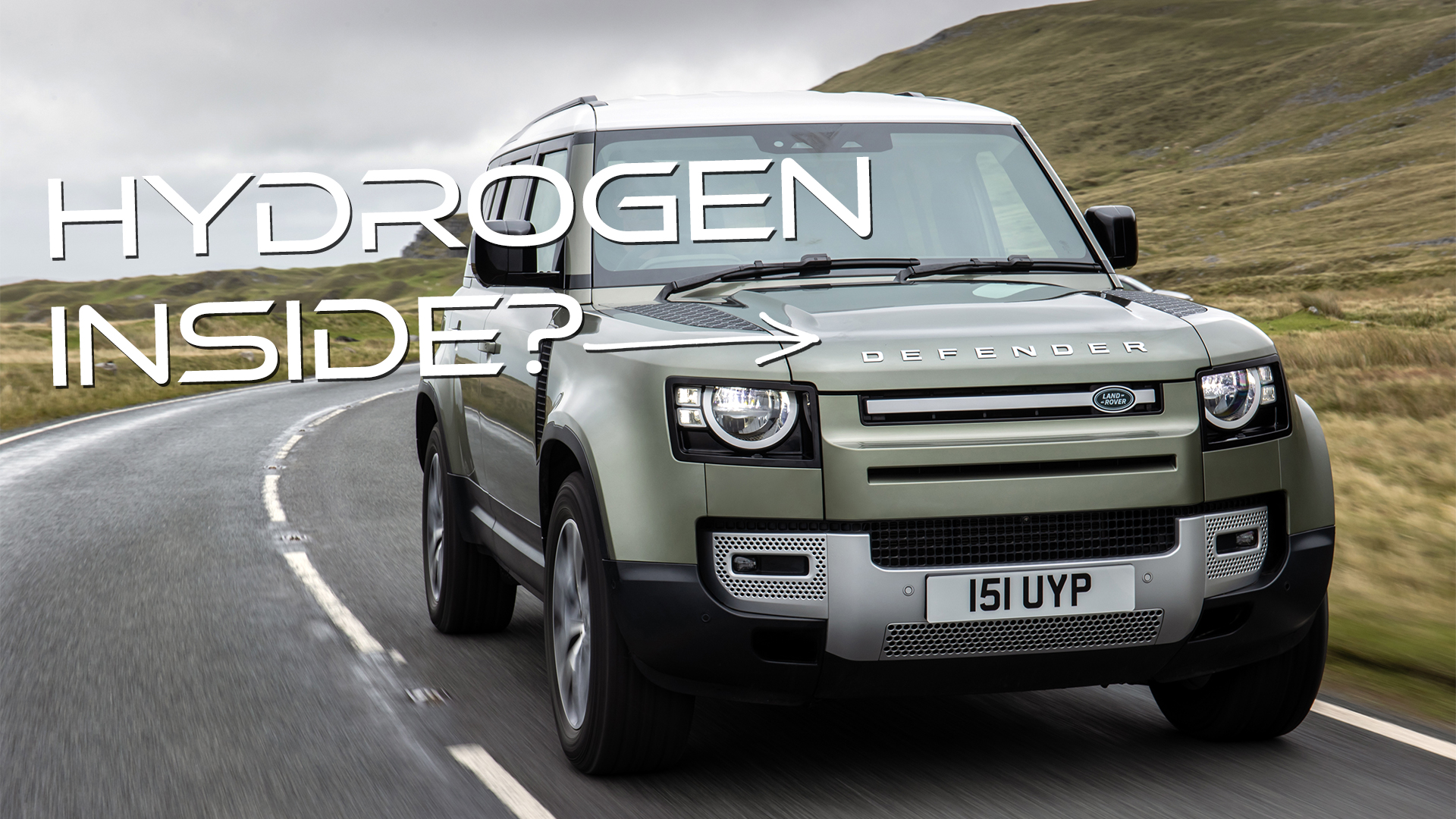Jaguar Land Rover has a number of goals laid out ahead of it, and one of those happens to be a lineup with zero emissions by 2036. To reach that, JLR is looking beyond battery electric vehicles and on to fuel-cell equipped machines. We’re talking about hydrogen here, and it’s a surprising move. Still, the possibilities of hydrogen fuel-cell-powered vehicles are intriguing if we can get past that bit about the lack of infrastructure.
Land Rover is building a concept Defender which will utilize a hydrogen fuel cell for power. It’s part of an engineering program called Project Zeus. And it makes a bit more sense if you believe, like Land Rover, that hydrogen vehicles and fueling stations are poised to hit major milestones in the coming years.
Per a group called the Hydrogen Council, FCEVs will hit 10 million vehicles by 2030. And the number of filling stations will rise to 10,000 across the world in that same time. It makes sense that both would rise together, of course, because you can’t have all those vehicles on the road without the means to keep them moving.
Still, the amount of stations available right now is low. According to the International Energy Agency, there were 470 stations in operation across the globe at the end of 2019. That’s a healthy 20% jump compared to just one year prior. Korea is increasing its amount of stations, as are Germany and Japan, but the US is moving slowly to add more. It costs a lot to have them installed, so gas station owners aren’t quick to make the move to add hydrogen to the list of their available consumables.
Regardless, hydrogen does make sense once it hits at a certain level of scale. The technology is more easily scalable compared to battery electric vehicles. Instead of adding more batteries, which adds tremendous weight, you make the size of the hydrogen tank larger to hold more fuel. The motors stay the same size. Scale this up to the level needed to power ocean-going cargo ships, passenger and cargo trains, and perhaps semi-trucks, and perhaps then hydrogen will start to make more sense at a passenger car level as well.
For now, it doesn’t make much sense outside of a few markets. Maybe by the time Land Rover is done testing with Project Zeus, the hydrogen picture will be a little brighter…


Leave a Reply